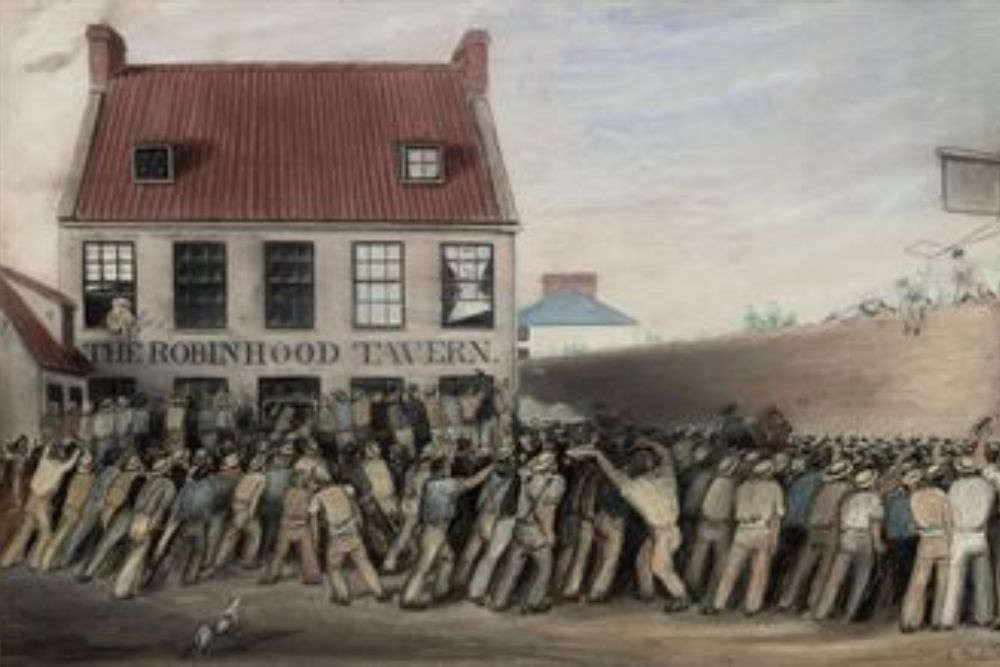In 1769, frustrations with food shortages, rising prices, an unfair taxation system, and Jersey’s power structure led to the storming of the Royal Court by around 500 Islanders in what became known as The Corn Riots.

In 1767, people protested about the export of grain from the Island. Anonymous threats were made against shipowners and a law was passed the following year to keep corn in Jersey. In August 1769 the States of Jersey repealed this law, claiming that crops in the Island were plentiful. There was suspicion that this was a ploy to raise the price of wheat, which would be beneficial to the rich, many of whom had ‘rentes’ owed to them on properties that were payable in wheat. As major landowners, the Lemprière family stood to profit hugely.
On Thursday 28 September 1769, a Court called the Assize d’Héritage was sitting, hearing cases relating to property disputes. The Lieutenant Bailiff, Charles Lemprière, sat as the Head of the Court. Meanwhile, a group of disgruntled individuals from Trinity, St Martin, St John, St Lawrence and St Saviour marched towards Town where their numbers were swelled by residents of St Helier. The group was met at the door of the Royal Court and was urged to disperse and send its demands in a more respectful manner. However, the crowd forced its way into the Court Room armed with clubs and sticks. Inside, they ordered that their demands be written down in the Court book. Although the King later commanded that the lines be removed from the book (image 3), a transcription survives that shows the crowd’s demands.
In September 1770, Bentinck declared that a set of rules and regulations be written down to make the Law as fair as possible. The aim was that everyone ‘…be no more obliged to Live in a continual dread of becoming liable to punishments, for disobeying Laws it was morally impossible for them to have the least knowledge of.’

Bentinck’s Code was introduced in 1771 and clearly laid down the Laws of the Island. It also divided the power to make the laws and enforce the laws between the States of Jersey and the Royal Court. Charles Lemprière remained as Lieutenant Bailiff but he had lost his monopoly on power.
The Corn Riots had started Jersey on the road to reform and a fairer society.

